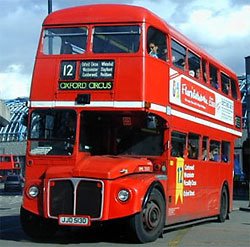Rodney Hide has announced
he is resubmitting his private member’s bill on capping council rates increases to the rate of inflation, after reporting that Auckland City Council will be increasing rates by 55-196% over the next ten years.
Of course this was going to happen for three reasons:
1. Local government is full of petty bureaucrats and inexorably works to increase its size and influence. It is cancerous, it doesn’t seek to shrink.
2. Labour (and the then Alliance) and the Greens voted in 2001 to give local government a power of general (in)competence. This means that councils can get into whatever activity they wish, as long as they consult “the community”. Since most of “the community” spends its time working and living, and can’t be bothered responding to these consultation processes, most things councils do get rubber stamped. Council were set off the legal leash with the Local Government Act 2002.
3. The lefty council elected last year by Aucklanders is even more enamoured by more interference and more council spending – so Aucklanders made things even worse.
So there you have it – until local government is slashed to the bone, or better still, abolished it will grow and grow, like a tumour. Rodney’s Bill ought to be supported by the Nats and United Future (since United Future campaigned on abolishing GST on rates), so we should let NZ First argue in favour of growing local authority rates. You might ask National Party member and Auckland City Councillor
Aaron Bhatnagar what he thinks - after all, Auckland City Council simply grew SLOWER under the Banks/CRN council that got voted out in 2004.
If Libertarianz were in Parliament, it would support the Bill too, although would be working on amendments to at least cap rates for ten years, if not slash them.
The truth is that rates shouldn’t be capped at inflation, councils need trimming, so they should have rates capped indefinitely, and prohibited from entering into any new activities and required to privatise (by whatever means) any businesses they operate.
User pays should apply to all services that can be charged that way practicably, and what is left to councils should be the remaining “public good” activities that are most difficult to shift to the private sector.
Within three years, Auckland City Council could have sold or given away shares in all businesses it is involved in, and sold all surplus property. Subsidies would have been abolished. User pays could apply wherever it could be practically implemented.
Within six years, Auckland City Council could have given to the voluntary sector all of its social activities, such as community centres and pools and parks. Activities unable to be operated by user pays would be transferred to the voluntary sector, or adjacent private property owners (e.g. trusts for footpaths).
Within nine years, the remaining planning functions of Auckland City Council could have been abolished, as property rights were granted in a wider range of factors (airspace, noise, pollution). Roads would be held by either body corporates for local streets or a company for major arterials - and the relevant owner would charge for road use.
See, Auckland City Council could be abolished within ten years.
and kneesocks would be compulsory for all women 18-35
